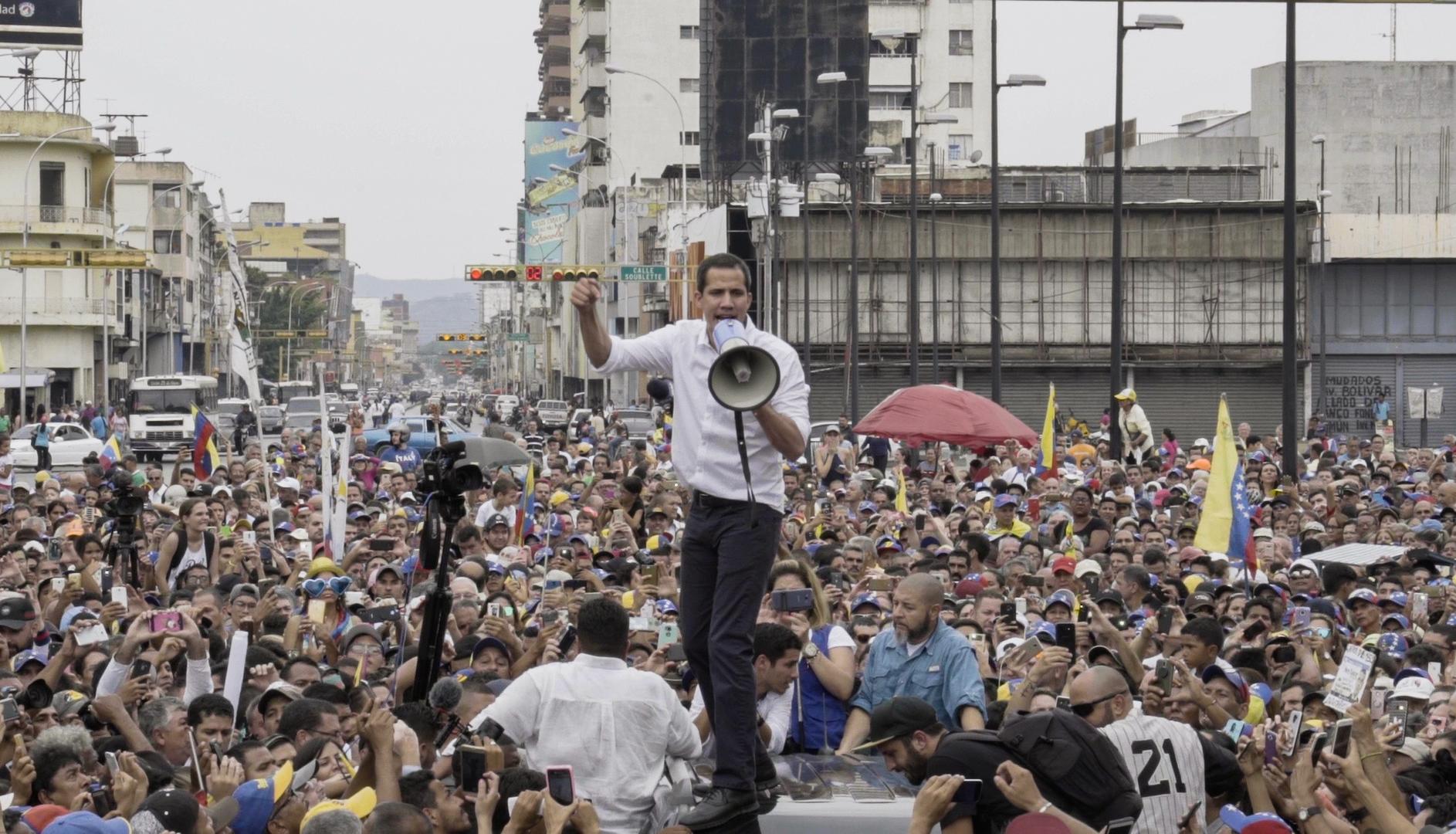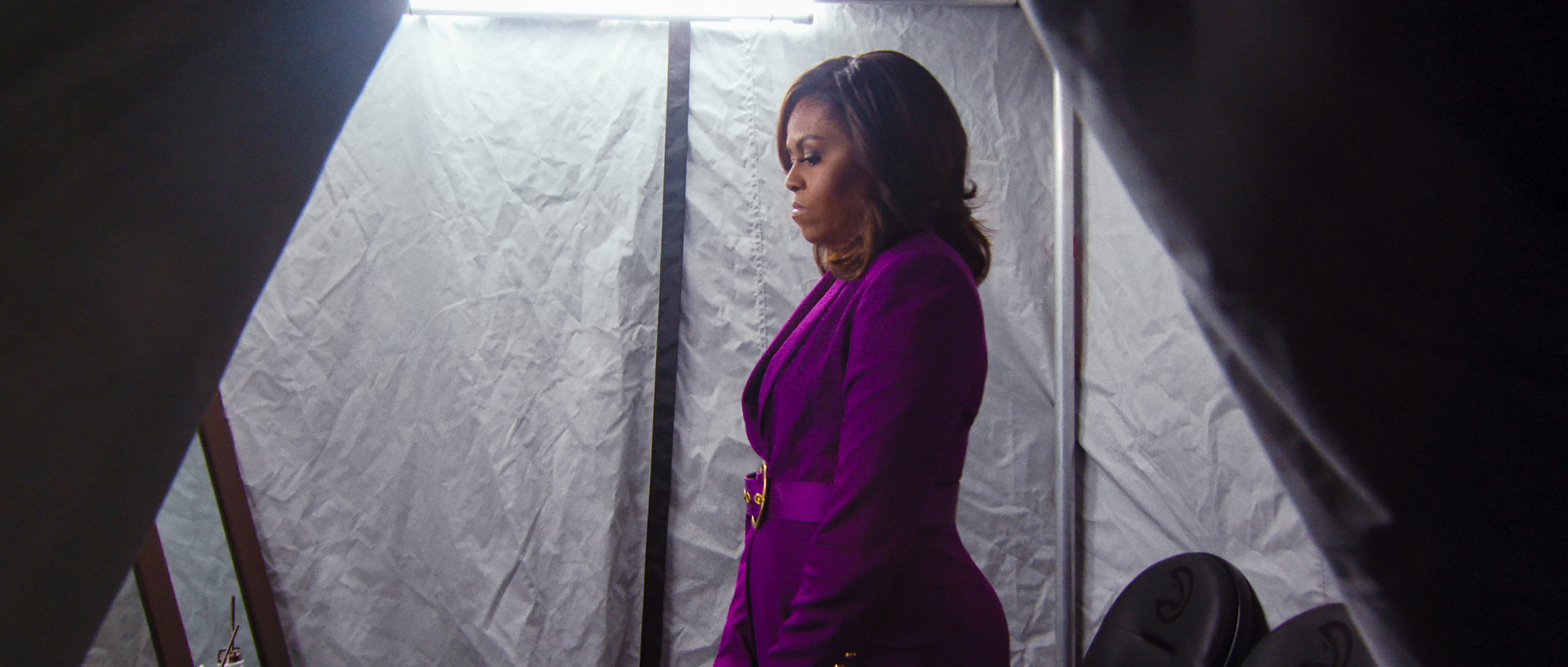A La Calle
(USA, 111 min.)
Dir. Nelson G. Navarrete and Maxx Caicedo
Impassioned activists take to the streets in A La Calle. The doc, which opens the 2021 Human Rights Watch Film Festival at Hot Docs Ted Rogers Cinema, is another fiery portrait of citizens fighting for their country against corrupt powers. Directors Nelson G. Navarrete and Maxx Caicedo observe guardians of human rights in action on the streets of Venezuela. Film over five years from 2014 to 2019, A La Calle captures the growing abuse of power by the nation’s illegitimate and dictatorial president, Nicolás Maduro. His oppressive regime is mighty, but it’s no match for the spirit of the people.
A La Calle captures the scale of Venezuela’s economy in a tailspin. The doc covers a lot of territory and the amount of information to take in is somewhat overwhelming, but Navarrete, Caicedo, and their participants make clear what’s at stake. The doc recaps Maduro’s ascent to power following the death of President Hugo Chávez in 2013. Having held the Office of the President since 1999, Chávez’s popularity and impact hangs atop the events captured in A La Calle. Many of the downturns in the economy—including food scarcity and an actual shortage of currency in the midst of an oil boon—were already happening during the final years of his life, but are glaringly apparent with the actions of his successor. However, the doc observes many Venezuelans still enamoured by the charismatic appeal of their former leader. They believe that an idealised legacy endures. As the verité footage and interviews show, however, this is clearly not the case.
Navarrete and Caicedo observe an array of problems in Venezuela, but, as is often more beneficial, turn their eyes to people finding solutions. A La Calle features a multifaceted list of subjects who illustrate the human toll of Maduro’s neglect for the people of Venezuela. The subjects include Leopoldo López, an activist, leader, and political prisoner serving time for speaking out against the Maduro regime. The film picks up with López as he begins a 13-year prison sentence, which leaders worldwide decry as politically motivated. He injects his voice into the film through video diaries from his cell. His voice inspires a movement that carries his opposition to Maduro into the streets, offering a peaceful demonstration of protest. His wife, Lillian, appears in interviews to discuss her family’s sacrifice and its support of López as he continues to be a voice for the people.
Other subjects include activist Nixon Leal, who evades police surveillance and suspicions of terrorist activity for fighting for human rights. Similarly, A La Calle enjoys extraordinary access to President Juan Guaidó, who remains in a hotly contested dispute for the Presidency with Maduro. Navarette and Caicedo chronicle the abuses of power and incidents of voter suppression and manipulation that inspired some favour for Maduro and put the legitimacy of the results into question. A La Calle observes Guaidó fighting for everyday Venezuelans by welcoming humanitarian aid while Maduro tells the media that reports of poverty, food scarcity, and a shortage of medical supplies are all fake news. (A montage of the rap sheet of right-wing leaders inevitably aligns Maduro with the likes of Putin and Trump, stressing an obvious point that the fight observed in Venezuela is not unique.)
More compelling, however, are the stories of people like Randal Blanco. He works as a barber and struggles to make ends meet, sometimes allowing customers to trade cheese or rice for haircuts because they don’t have access to cash. In order to buy food for his family, Blanco transfers money to a usurious currency dealer, who offers paper money at an exchange rate of fifty percent. It takes stacks of money just to buy a bag of flour, while Maduro dolls out pithy care packages in the streets.
It’s in the streets, however, where A La Calle truly comes alive. Navarette and Caicedo capture urgent and immediate footage of mass protests. There are images of violence and police brutality as officers gun down activists with smoke canisters and rubber bullets, but there are also images of extinguishable spirit. Particularly in the youth movement, the film finds notes of optimism as students realize that they may need to leave Venezuela to better their futures, but make promises to return and restore order. A La Calle is yet another portrait of a nation teetering precariously upon the edge of democracy. It won’t be the last film to take audiences to the brink, but one hopes it will add to the chorus of voices working to balance the scales.
A La Calle opens the Human Rights Watch Film Festival that begins streaming at Hot Docs Ted Rogers Cinema on Feb. 18. Other docs in the festival include I Am Samuel and Maxima.














